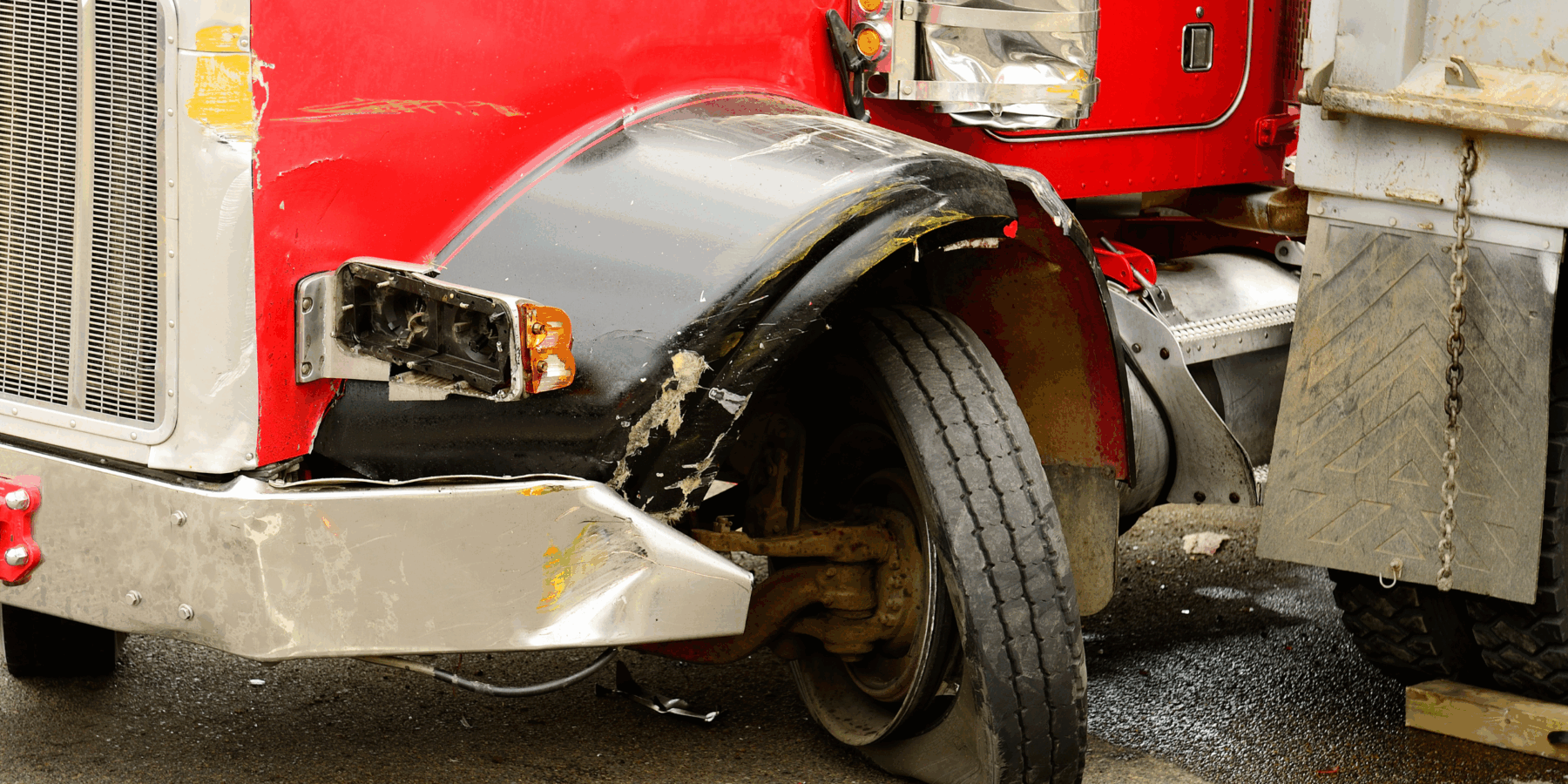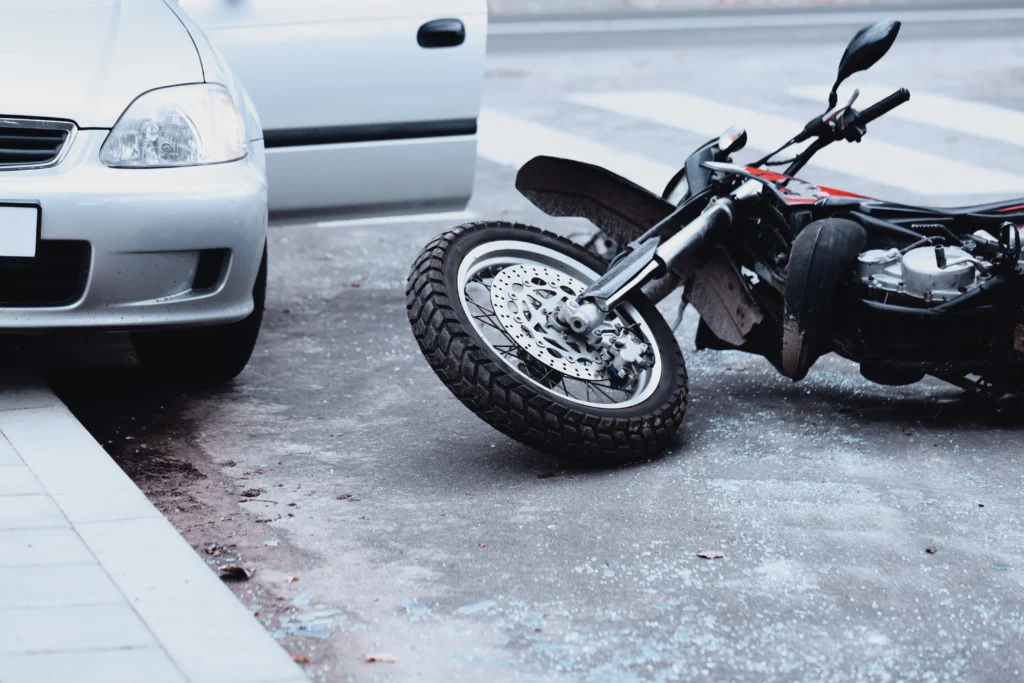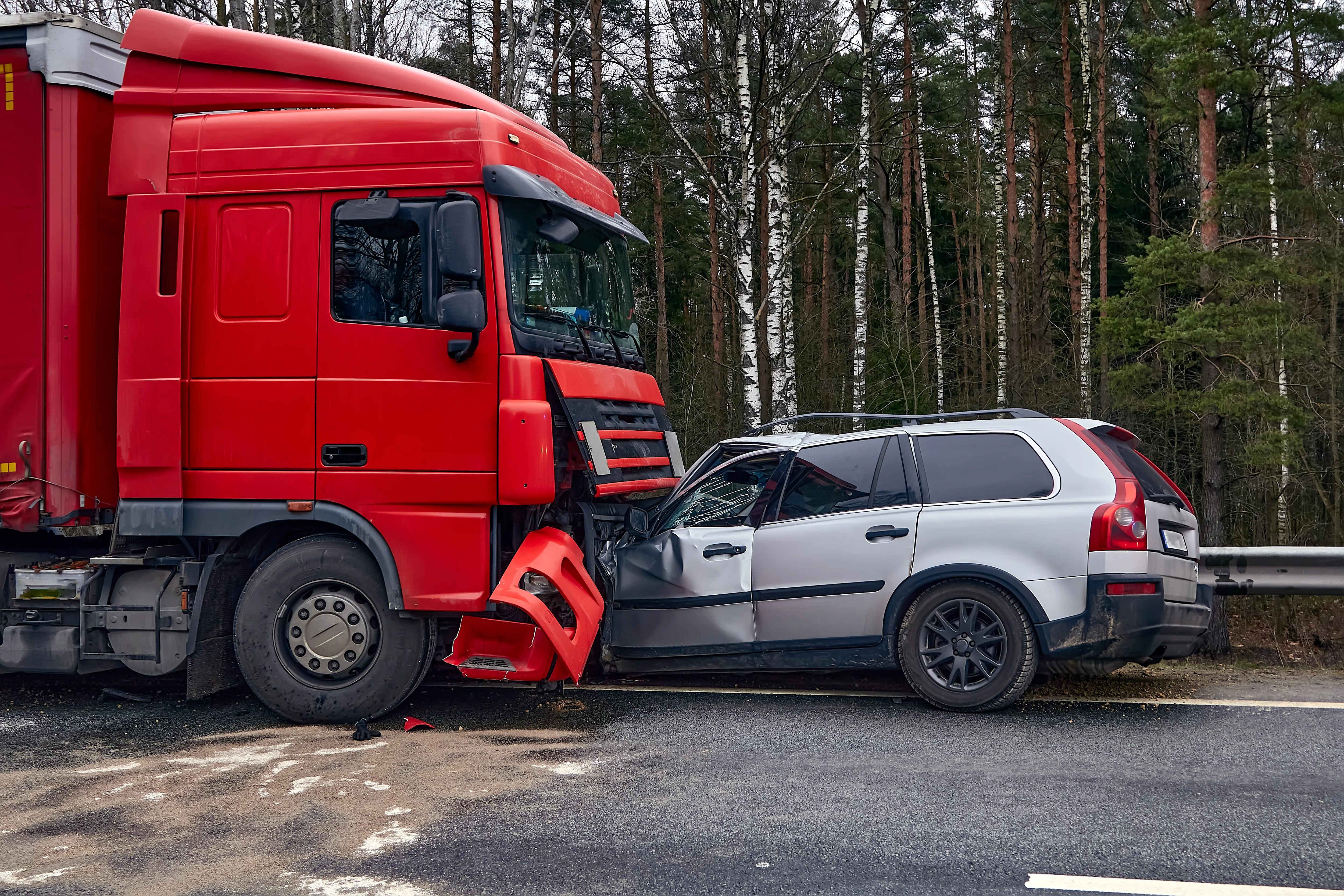Yakima Truck Collision Lawyers Serving the Lower Valley
Yakima truck accidents are not to be taken lightly. Interstate freight semis, farm produce trucks, and delivery trucks clog highways such as I-82, US-97, and Nob Hill Boulevard daily. When these massive rigs strike smaller cars, the consequences are often devastating. Our lawyers build aggressive, high-stakes cases for Yakima truck wreck victims. We act fast to preserve black box recordation, secure roadside recordings, and pressure carriers before they destroy the evidence.
At Bernard Law Group, we have recovered millions on behalf of Washington accident injury victims throughout the state. We handle cases in Yakima County and the Lower Valley due to driver negligence, brake failure, loading improperly, and driver fatigue. If a truck hit you, we will identify all at-fault parties, trucking companies, brokers, and cargo shippers, and hold them accountable.
Call (206) 752-2233 today for a free case consultation. Don’t speak with the insurance company before speaking with us.
Learn more about freight and commercial traffic movements in Yakima from the Washington State Freight Mobility Plan, a report that maps out local truck routes and risk factors.
We Investigate Yakima Truck Accidents From the Ground Up
Every Yakima truck accident leaves behind more than crushed metal. What caused the wreck rarely ends with the driver. These cases often involve dispatch errors, unbalanced freight, failed brake systems, or missed safety checks. That’s why our firm works every case from the ground up. We go beyond the police report and build our own timeline using evidence the insurance company would rather ignore.
Yakima sees constant freight movement on I-82, SR-24, and US-97. Most trucks carry agriculture or distribution-related cargo, and their operators follow tight schedules that don’t account for safety. When they cut corners, we respond. We collect the data that proves fault and forces commercial carriers to pay.
For more on how the trucking industry impacts crash liability, see the FMCSA Trucking Regulations Overview.
We Retrieve Digital Black Box Data Before It Is Deleted
Truck-mounted electronic logging devices hold the truth after a Yakima truck wreck. These data systems track brake use, throttle position, gear shifts, and lane movement. The moment the crash happens, the system locks in the last few seconds of vehicle behavior.
Our legal team sends preservation letters right after the call. We do not wait for the carrier to erase or overwrite the information. This digital evidence often shows aggressive speed, last-second swerving, or hard brake failure. That helps us show who really caused the collision.
Learn how black box data helps prove crash fault through this University of California ITS research brief.
Onboard Systems Help Us Prove Yakima Truck Driver Negligence
Electronic logging devices also reveal logbook violations. Many Yakima truck drivers push past legal driving limits to meet deadlines. These logs tell us whether the driver skipped rest, broke hours-of-service rules, or ignored company safety policies.
By pairing black box data with dispatch records, we create a full picture of driver behavior in the hours before the wreck. When that behavior crosses the line, we hold both the driver and the carrier responsible.
We Preserve Crash Scene Evidence Before the Road Is Cleared
When trucks crash on Yakima highways, road crews move fast to reopen the lanes. Skid marks disappear. Fluids wash away. Debris is swept up. If you wait even one day, key physical evidence may already be gone.
Our legal team inspects the crash scene immediately. We document surface damage, collect drone footage, and map gouge marks. We do this before reconstruction becomes guesswork. These details prove vehicle speed, direction, and driver reactions in ways that police reports rarely capture.
Local Weather and Road Maintenance Impact Yakima Truck Crashes
In Central Washington, Yakima truck collisions often involve road slope, frost, or drainage issues. We record these conditions as they were on the day of the wreck. Even lighting and signage visibility matter. Our team knows where to look and when to document.
We’ve handled cases involving faded lane lines, malfunctioning traffic signals, and intersections with poor design. These factors, combined with a loaded truck, create the conditions for high-speed wrecks that injure or kill. We use this to your advantage in both negotiation and litigation.
We Subpoena Dispatch Logs and Safety Records from the Carrier
Trucking companies document everything, but they don’t volunteer records. We force them to hand over dispatch logs, delivery timelines, truck inspection histories, and training files. These documents often expose corporate negligence that caused the crash.
In Yakima County, many trucking carriers operate under pressure to move cargo fast. That pressure leads to skipped inspections, overlooked defects, or inexperienced drivers behind the wheel. When we uncover these practices, we turn them into evidence.
Review the National Safety Council’s commercial truck risk guide for more on how these failures lead to crashes.
Internal Emails and Incident Reports Help Prove Liability
Company incident reports, if preserved, often contain critical admissions. Drivers file these reports after collisions, and they sometimes admit distraction, sleepiness, or delayed braking. We request these reports during discovery and compare them to official statements.
Additionally, internal emails or maintenance tickets may show that the company knew about safety problems before the crash. When companies knew and failed to act, that builds leverage for high-dollar recovery in catastrophic injury cases.
Rear-End Truck Collisions Near Yakima Avenue and Nob Hill Boulevard
Rear-end truck crashes in Yakima are not simple accidents. They often involve overloaded rigs, failed brakes, or distracted operators moving too fast through city corridors. Intersections near Yakima Avenue and Nob Hill Boulevard see constant freight traffic. When large trucks tailgate or misjudge stopping distance, they strike smaller vehicles with violent force. Victims suffer spinal injuries, fractured bones, and traumatic brain injuries from these sudden impacts.
Our legal team knows how to investigate these local wrecks. We use road geometry, traffic patterns, and surveillance from nearby businesses to build strong liability claims. These collisions do not just happen. They occur because commercial drivers fail to keep safe distances or operate beyond legal fatigue limits.
Learn more about the role of driver fatigue and rear-end crash risk from the National Sleep Foundation.
Truck Drivers Cause Rear-End Crashes When They Ignore Following Distance
In Yakima’s urban freight corridors, truck drivers often follow too closely. They attempt to stop a fully loaded trailer with less than 100 feet of space. When the vehicle ahead slows down for a light, there is no time to react. That failure becomes a multi-ton impact at 35 or 40 miles per hour.
We use digital speed data and brake activation logs to show how long the truck had to stop. If the driver failed to apply the brakes soon enough, we prove it through black box records and tire friction analysis. This is not about assumptions. It is about facts backed by physics and commercial safety rules.
For a deeper look into truck stopping distance guidelines, see FMCSA Stopping Distance Requirements.
Rear-End Collisions Often Happen on Slopes and Near Traffic Signals
The incline near Nob Hill Boulevard and surrounding commercial streets adds to the problem. Trucks coming downhill pick up speed, even while coasting. When traffic slows for lights or turns, these trucks need far more room than they are given.
Many rear-end truck crashes in Yakima happen just after the light turns yellow. Drivers try to rush through, but the vehicle ahead does not. We use signal timing records, dashcam footage, and traffic light cycles to prove who had the opportunity to stop and who ignored it.
Distraction Behind the Wheel Is a Leading Factor in Yakima Truck Crashes
Texting. Navigation apps. Dispatch updates. These are the distractions that cause truck drivers to miss changes in traffic ahead. In Yakima, freight drivers often operate on tight windows while managing multiple screens and alerts inside the cab.
Our team secures cell phone data and company-issued tablet records to verify distraction at the time of the crash. If a driver sent or received a message seconds before impact, we prove it with timestamps and system logs. That data helps us build a full-scale claim for negligence and inattentive operation.
See how distraction impacts truck safety in the National Safety Council’s distracted driving facts.
Rear-End Crashes Involving Inattention Require Immediate Legal Pressure
When truck drivers fail to look up in time, they destroy lives. But trucking companies still try to shift the blame. They claim the car stopped too suddenly or that conditions were unpredictable. We counter those excuses with physical evidence and aggressive legal action.
We inspect damage profiles and impact angles. These technical factors show that the truck was moving too fast and that the driver did not anticipate normal traffic behavior. We do not accept vague denials. We use Yakima-specific road patterns to hold the carrier accountable.
Cargo Load Shifts and Unsecured Freight in the Lower Yakima Valley
When Yakima truck loads shift during transport, the outcome is often violent. A fully loaded trailer can weigh over 80,000 pounds. If that weight shifts unexpectedly, it throws the truck off balance. These crashes result in jackknifes, rollovers, or sudden lane departures that leave nearby drivers with no time to react. On narrow farm-to-market roads in the Lower Valley, where space and visibility are limited, these wrecks leave little room for survival.
Cargo-related collisions in Yakima County often tie back to negligent loading practices. Whether it’s a missed tie-down, uneven weight distribution, or expired securement equipment, the damage always lands on the same victims: families in passenger vehicles who never saw it coming. We expose the shippers, loaders, and carriers that caused the wreck and force them to answer for it.
Review federal load securement regulations on the FMCSA Cargo Securement Rules.
Loose Freight and Shifting Pallets Cause Jackknife Wrecks in Yakima County
One sudden swerve or downhill brake tap is all it takes. When a trailer carries uneven weight or unsecured items, the truck loses stability fast. On highways like SR-24 and SR-241, trucks hauling produce or bulk freight often lose control in curves or windy cross-county stretches. Jackknife accidents often follow, blocking multiple lanes and trapping smaller vehicles underneath.
We use post-crash trailer inspections, inventory manifests, and crash scene reports to track exactly how cargo contributed to the crash. These are not unavoidable accidents. They happen when companies fail to train their teams or enforce basic load safety rules. We take that evidence and use it to build maximum-value claims for our injured clients.
Agricultural Transport Loads in the Lower Valley Require Extra Oversight
Many Yakima truck accidents involve seasonal freight like hay, apples, or onions. These loads shift naturally if stacked too loosely or strapped with worn binders. When agricultural carriers rush to meet demand, they often skip proper inspections or ignore axle weight limits.
Our legal team holds every link in the chain accountable, from the grower to the freight broker to the delivery contractor. In many of these Yakima truck collisions, the shipper failed to provide proper load instructions or safety checks before release. We collect those documents, subpoena internal logs, and show how this negligence led directly to injury.
Overweight Freight Causes Mechanical Failure and Loss of Control
When commercial trucks exceed legal weight limits, brakes wear down faster and tires blow more easily. Overloaded semis take longer to stop and often tip on curves or downhill grades. These mechanical failures lead directly to catastrophic crashes in Yakima and the Lower Valley.
We work with crash reconstruction experts and mechanical engineers to review scale tickets, axle logs, and post-collision maintenance inspections. Our goal is to show exactly when the load became a hazard and who allowed it to roll out that way. This documentation adds pressure and financial risk to the trucking company and their insurer.
Weight Violations in Yakima Truck Accidents Must Be Exposed Quickly
Local roads near Grandview, Toppenish, and Zillah see frequent violations involving produce haulers and short-range freight operators. These carriers often skip weigh stations or bypass scale routes completely. When their trucks crash, the cargo gets blamed. But we prove it was the company that overloaded the trailer and sent it into traffic anyway.
We request DOT inspection records, weigh station bypass history, and prior citations for each vehicle involved. When we find patterns, we turn those into leverage for your claim. Insurance carriers settle faster when faced with a full-scale regulatory breach.
Freight Routes Through Yakima Pose High Risk to Local Drivers
Yakima sits at the heart of Central Washington’s freight movement. With major routes like I-82, US-97, and SR-24 running through the city and into the Lower Valley, trucks pass through local neighborhoods, business zones, and residential corridors every hour. These freight routes bring more than produce and commercial goods. They bring a constant threat of high-impact truck collisions, especially where stoplights, pedestrian crosswalks, and school zones meet long-haul traffic.
Trucking companies rely on these highways for access to distribution hubs in Union Gap, industrial parks along Longfibre Road, and food processing facilities throughout Yakima County. But the design of these corridors fails to protect local drivers. From aggressive lane merges to unmarked intersections, these roads expose families, workers, and students to oversized vehicles that can cause life-altering injuries in seconds.
High-Speed Traffic Along I-82 Increases Yakima Truck Collision Risk
I-82 cuts straight through Yakima and Union Gap, carrying long-haul carriers that move at highway speeds even near city limits. These trucks often exit onto Valley Mall Boulevard or Nob Hill Boulevard without slowing adequately, especially during early morning delivery runs or late-night hauls. The mix of high-speed freight traffic and local vehicle flow creates an unstable driving environment.
We regularly handle cases involving trucks that failed to yield, merged unsafely, or struck smaller cars exiting retail centers. These collisions are not simple errors. They stem from a mismatch between freight route design and urban traffic realities. Our legal team uses DOT traffic pattern data and driver behavior analysis to prove liability and maximize compensation.
Learn how highway speed near city centers creates conflict zones from the National Association of City Transportation Officials.
Interchanges Near Valley Mall Boulevard Pose Hidden Dangers
Valley Mall Boulevard serves as a connector between I-82 and Yakima’s commercial core. This road sees a constant stream of delivery trucks exiting at full weight and re-entering with little buffer space. The lack of dedicated truck lanes or visual warnings leads to frequent side-swipes, rear-end impacts, and pedestrian near-misses.
We investigate truck crashes along this route using GPS logs, city maintenance records, and signal timing data. These cases often reveal how a driver’s speed and blind spot led directly to the crash. By combining this with local road design flaws, we build claims that hold multiple parties accountable, including contractors and municipal entities when needed.
Yakima’s Industrial Corridors Funnel Trucks Through Tight Urban Areas
From Fruitvale Boulevard to South First Street, Yakima’s older roads struggle to manage the scale and weight of modern freight haulers. Many of these corridors were not designed for high-volume commercial traffic. Still, trucks continue to use them as direct connectors between I-82 and industrial yards, causing structural strain and elevated crash risks.
The result is more wide-turn collisions, broken curbs, and pedestrian hazards near business parks and service shops. In these areas, truck drivers often misjudge turn radius or strike vehicles during low-visibility cornering. Our team documents these risks with intersection diagrams, turning clearance studies, and damage mapping to show exactly how the collision occurred.
Explore how road design limitations affect truck routing in urban areas at ITE.org.
Freight Trucks Regularly Violate Local Safety Restrictions
Many trucks operating within Yakima city limits exceed weight or length restrictions, especially during produce season. Local ordinances limit which roads certain commercial vehicles may use, but enforcement often lags. When violations lead to injury or death, our firm investigates whether the driver ignored local truck routes or if the company failed to train or inform them.
We retrieve route permits, citation records, and dashcam evidence to show how and why the violation occurred. This adds liability and builds pressure on insurers to pay full value for the damage done. In Yakima, truck collisions tied to improper routing often involve multiple layers of fault, and we pursue all of them.
Yakima Workers Hit by Commercial Trucks on the Job Face Complex Legal Claims
Work-related truck accidents in Yakima do not just happen on the highways. They happen in parking lots, loading docks, orchard rows, and warehouse yards where workers carry out daily tasks within feet of heavy moving freight. These collisions cause some of the most severe injuries our legal team sees. When a commercial vehicle strikes a worker, the path to recovery involves overlapping insurance policies, disputed fault, and often denied claims.
Yakima’s economy runs on agriculture, warehousing, and logistics. That means many workers spend their shifts on foot or in smaller utility vehicles surrounded by larger trucks. When those trucks fail to yield, reverse without warning, or operate in restricted zones, the results are catastrophic. Our firm represents injured workers across Yakima County who were struck while doing their jobs, whether on public roads or private job sites.
Read more on occupational vehicle collision hazards from the Occupational Safety and Health Administration.
Commercial Trucks Strike Agricultural and Warehouse Workers Throughout the Lower Valley
From apple sorting facilities near Selah to distribution centers along Rudkin Road, Yakima workers face daily risks from box trucks, semis, and farm trailers moving without spotters or visual aids. Many of these crashes happen in confined spaces where visibility is poor and deadlines push drivers to move fast.
We gather surveillance footage, vehicle movement logs, and shift schedules to build a clear timeline of what went wrong. In many Yakima truck injury cases, the worker had no warning and no escape route. These injuries often involve crushed limbs, head trauma, or long-term mobility loss. Our team pushes for compensation from all responsible entities: contractors, property owners, and trucking firms alike.
For insight into how workplace layout impacts crash risk, see CPWR’s Construction Safety Report.
Forklift Zones and Loading Bays Create High Impact Risk
Inside Yakima warehouses and cold storage facilities, trucks back into bays throughout the day. Without proper warning systems or visible floor markings, workers are vulnerable. A driver who moves too early or too fast can strike someone standing just feet away.
We document truck blind spots, vehicle paths, and interior site plans to show how poor planning and rushed logistics led to preventable harm. We do not just target the driver. We hold site operators and delivery managers accountable for ignoring basic safety measures.
Utility Crews and Municipal Workers Get Hit on Local Streets and Shoulders
Public employees in Yakima, including utility crews, traffic control teams, and sanitation workers, face regular contact with moving freight. Many work near busy intersections or alongside industrial corridors where truck drivers often ignore cones, warning signs, or temporary closures.
Our firm handles cases involving workers struck during roadside repairs, trash pickup, or signal maintenance. These workers were visible, compliant, and actively working when a truck driver either failed to yield or drove directly into the work zone.
View the National Work Zone Safety Clearinghouse for statistics and best practices regarding traffic-related worker injuries.
Local Government Claims Require Fast Action and Clear Documentation
When a government worker is hit by a commercial vehicle, the legal path shifts. Claims often involve municipal filings and shorter deadlines than standard injury cases. We act immediately to preserve your rights, file on time, and secure all evidence before the city or contractor alters the scene.
We also confirm whether the truck was operated by a private company working under a city contract. That distinction matters. It often determines how much coverage applies and which insurer carries the financial risk. We untangle these details and keep your claim moving forward.
Yakima Truck Accident Lawyers Are Ready to Take Your Call Today
If a commercial truck hit you or someone in your family anywhere in Yakima County, do not wait for the insurance company to play games. Every hour that passes helps them build their defense. At Bernard Law Group, we act fast. We recover surveillance, secure black box data, and shut down excuses before they begin.
You are not just facing a trucking company. You are facing their legal team, claims adjusters, and corporate backers. That is why you need a legal team that has handled thousands of Washington injury cases and recovered millions for clients across the state. We handle wrecks on I-82, SR-24, Valley Mall Boulevard, and rural routes across the Lower Valley.
Call (206) 752-2233 now for a free consultation or contact us online. We are available 24/7. You pay nothing unless we win.
Practice Areas
Trust Us With Your Personal Injury Claim
If you or a loved one have been injured, Bernard Law Group will fight for you every step of the way. We will give our all to secure the compensation you rightfully deserve.
Contact usfor a free consultation.
Phone: (206) 312-3908









